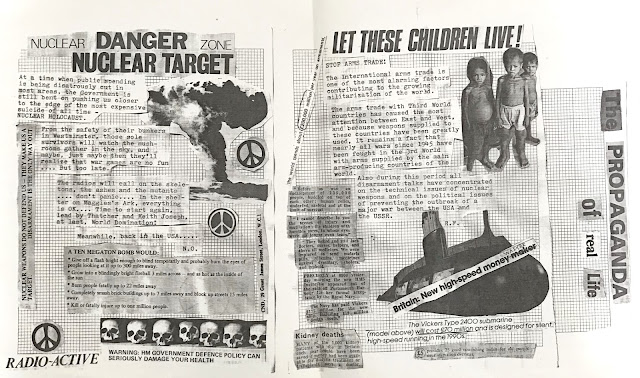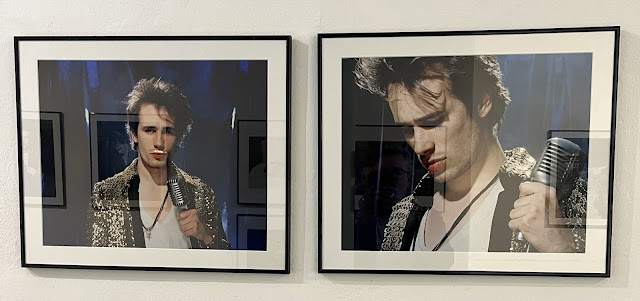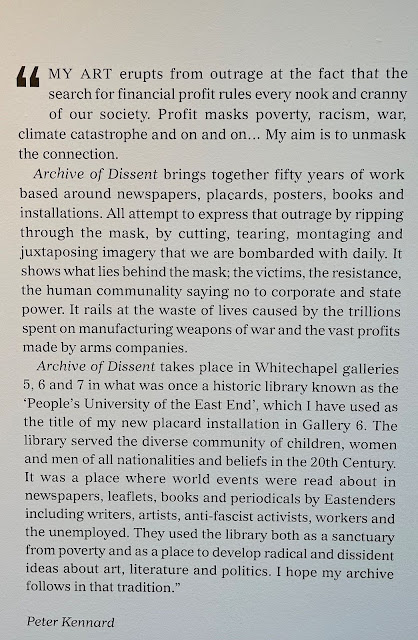Monday, September 23, 2024
'30 years of Grace' - photos of Jeff Buckley
Friday, September 13, 2024
Peter Kennard: Archive of Dissent and youthful montage adventures
Peter Kennard: Archive of Dissent at the Whitechapel Gallery is a retrospective of 50 years of radical image making.
 |
| 'blast open the continuum of history] - illustration for Guardian article on Walter Benjamin, 1990 |
Radical Photomontage
I've no doubt that it was through discussion of Kennard's work in the left press at this period that I first came across John Heartfield who of course was a big influence on him.
The juxtaposition of images and newspaper clippings was also a feature of punk/post punk sleeve design, such as The Pop Group's 'How much longer do we tolerate mass murder?' (1980)
Possibly my first print political intervention at this time (1980) was sticking up crude photocopied montages around my school (Luton Sixth Form) - 'The Propaganda of Real Life' - with me and my friend Robert F. Not sure how many people read them, but it acted like putting a spell out in the world to find like minded people. Off the back of this somebody invited us to a meeting in Sundon Park where a group of us teenagers set up Luton Peace Campaign, soon to become the Luton branch of the reborn CND.
 |
I am sure many other people were similarly inspired by Kennard, Heartfield and the DIY possibilities of photomontage at this time. Hopefully the Whitechapel exhibition will inspire some even now to pick up scissors and glue.
Peter Kennard: Archive of Dissent at the Whitechapel Gallery, 23 July 2024- 19 January 2025 (admission free)
Wednesday, September 11, 2024
Thank God for Immigrants - Wham and Jeremy Deller
 |
| Billboard poster, Brockley (South London), August 2024 |
 |
| The Birthday Party - Drunk on the Pope's Blood - at Somers Town 2025 |
 |
| Janet Kay at Somers Town festival |
 |
| Me in t-shirt savouring the delights of Bunhead Palestinian bakery in Herne Hill |
Wednesday, September 04, 2024
Martin Simpson - Palaces of Gold, an old song for Grenfell
 |
| posters in Shoreditch, 2024 |




.JPEG)








